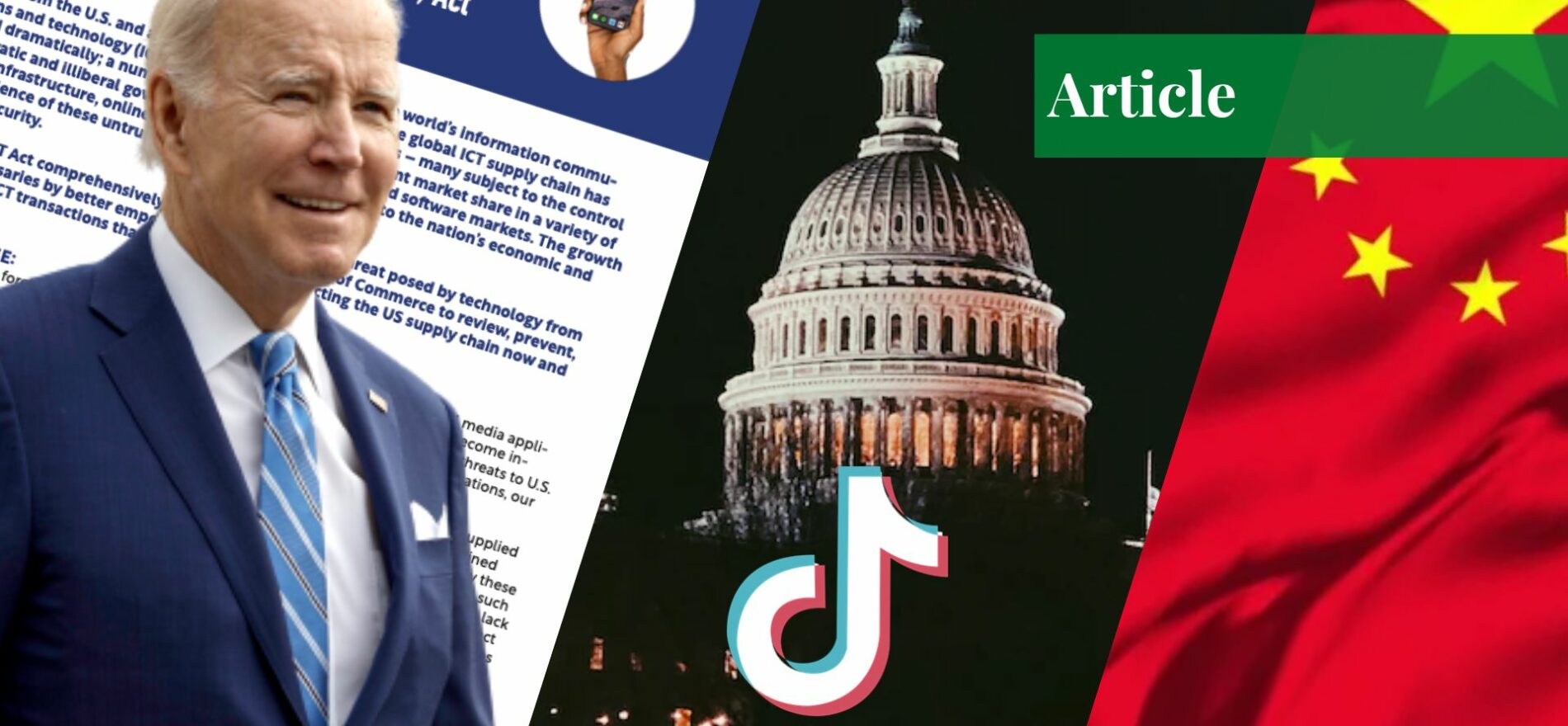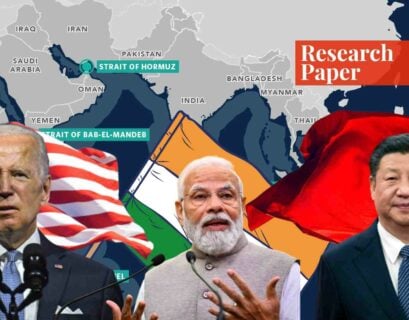China
China makes up around one-fourth of the Earth’s surface area and takes up roughly the whole East Asian landmass. Moreover, it is almost as big as all of Europe and is the largest nation in the world, with a history dating back more than 4,000 years. In addition, China is exceptional among countries in its durability and tenacity as a distinct politico-cultural entity, despite the repeated political and social upheavals that have wrecked the country.
With the primary exception of the arrival of Buddhism from India, much of China’s cultural evolution has occurred with little to no outside influence. Even when “barbarian” people like the Manchu infiltrated the nation, these nations were quickly substantially assimilated into Han Chinese civilization.
TikTok‘s History
TikTok is a social networking platform for making, editing, and distributing short films that last between 15 and three minutes. Users may add songs, noises, filters, and additional effects to their videos using TikTok. They may also post videos to it using their own smartphones. Moreover, anyone may access this platform in the majority of international locations and the same fundamental functionality is available in the Chinese version, known as Douyin, which also provides material relevant to the Chinese population.

Thanks to Vine, an app that permitted users to produce and distribute six-second-long films, short-form videos first gained popularity in 2013. The next year, Musical.ly, a Chinese social networking platform that permitted lengthier videos, made its debut (from 15 seconds to one minute). With thousands of songs available, users could create fun lip-synching and dancing films at first, which was its main emphasis.
After a few years, Musical.ly had tens of millions of users, notably among American adolescents who used it often. Musical.ly was purchased by the Chinese business ByteDance for $800 million towards the end of 2017. In the summer of 2018, TikTok and Musical.ly’s user accounts and content were combined by ByteDance.
Is TikTok a Possible Threat?
According to military records from China that have been deciphered, the focus of combat is moving from killing people to mind manipulation and paralysis. The Biden administration’s demand that the Chinese owners of TikTok sell their shares in the app or risk a US ban is only the beginning of a drawn-out game of whac-a-mole in a larger plan to fight data breach and cyber security concerns as well as cognitive warfare, with the battlefield being the human mind.
An outright ban on TikTok may eliminate the initial and fattest mole, but it will not address the broader transition to intellectual warfare, which is currently the sixth realm of military operations. This includes Chinese influence campaigns on TikTok, a massive collection of private and biometric data from American citizens, and the race to build weapons that could one day directly challenge or restrict human minds.

The Restricting the Emergence of Security Threats that Risk Information and Communications Technology (RESTRICT) Act would allow the commerce department to assess foreign-sourced technology for the White House. Depending on the results of any study, the commerce department may subsequently try to prohibit certain technology or attempt to force their sale. The idea would need to pass both legislative houses and be signed by the president to become law, as is the case with all such measures.
The RESTRICT Act has garnered support from all sides of the political spectrum in the Senate, where Democrats and the Independents who caucus with them hold a 51-49 lead. There is a modest numerical advantage for Republicans in the House of Representatives.
Cognitive Warfare
A project manager at the NATO Act Innovation Center named François du Cluzel published a paper titled Cognitive Warfare in November 2020 that identified the human realm as the area where countries are rushing to weaponize neuroscience. The Chinese institutions and businesses that the US government suspects of developing risky “biotechnology procedures to assist Chinese military end use,” such as “purported brain-control weaponry,” have been placed on a “blacklist.”
The Chinese People’s Liberation Army (PLA) is making significant investments in cognitive domain operations, including AI research into hardware, software, and judgment that is inspired by the human brain. This constitutes an entire “evolution in warfare, moving from the natural and material realms – land, naval, air, and electromagnetic – into the realm of the human mind,” according to Nathan Beauchamp-Mustafaga, a China specialist at the Rand Corporation. He claims that the PLA seeks to “influence or even dominate the thinking ability and judgment of the opponent.”
Platforms like TikTok are excellent examples of cognitive impact since they shape the opinions and preferences of their large user base while gathering information and creating psychogenic profiles of them. The algorithm behind TikTok can influence public perception and use user data to influence preferences, prejudices, and opinions. Users unknowingly provide face recognition data using TikTok’s filters and games, which leads to an increase in the gathering of biometric data from Americans by foreign governments.
Nevertheless, we shouldn’t let the present attention on TikTok distract us from the fact that China is also collecting critical biometric data through other technology it has used in the United States. One such is the Flowtime gadget, a neurotechnology headset made by the Chinese business Hangzhou Enter Electronic Technology Co, Ltd (“Entertech”) that is utilized by many Americans for meditation, gaming, and other uses.
The State Grid Corporation of China, a state-owned electric utility company in China, purchased tens of thousands of helmets with EEG sensors from Entertech so it could monitor the brainwave activity and tiredness levels of its employees in real-time while they were working. Millions of raw EEG data records from people all around the world have been gathered by Entertech, coupled with data on people’s personal information, devices, and app activity.
The emergence of brain control weapons is the most concerning part of cognitive combat. Researchers supported by the Chinese National Natural Science Foundation have encouraged China to fund military brain science (MBS), which focuses on the creation of infrasound and brainwave interference devices as well as research into the effects of different weapons on brain tissue. They contend that the brain serves as the “‘headquarters’ of the human body” and that precisely assaulting the brain with weaponry would soon rank among the most successful ways to win or lose on the battleground.
Although the US intelligence agency has ruled out the likelihood that a foreign foe was to blame for the Havana Syndrome, the US military has been experimenting with pulsed energy on animals to mimic the symptoms of the syndrome. Although having nothing to do with TikTok, US concerns about Chinese government spying grew when American fighter aircraft downed a Chinese spy balloon off the coast of South Carolina on 4th February.
Conclusion
Beyond just prohibiting applications like TikTok, combating cognitive warfare necessitates a diverse strategy. To ensure that people have the right to cognitive liberty, as well as the right to mental privacy, freedom of thinking, and self-determination over our brains and mental experiences, the US must act rapidly to establish global rights and standards.
Providing the public with specific information about the hazards to individuals and national security must also increase public awareness of the dangers posed by digital platforms and neurotechnology gadgets. Users will be better equipped to choose their internet presence and the gadgets they use if consumers are informed about possible risks.
Moreover, a thorough, long-term approach that integrates rights, legislation, technology, education, and global collaboration is necessary to win the battle for minds. Fostering trust and facilitating communal awareness of the struggle for minds will be made possible by encouraging open communication and openness between governments, the corporate sector, and citizens.
Furthermore, by taking immediate action, it may provide the groundwork for future generations to enjoy the freedom to think for themselves by constructing a strong defense against challenges to our cognitive liberty and integrity.
If you want to submit your articles, research papers, and book reviews, please check the Submissions page.
The views and opinions expressed in this article/paper are the author’s own and do not necessarily reflect the editorial position of Paradigm Shift.



















